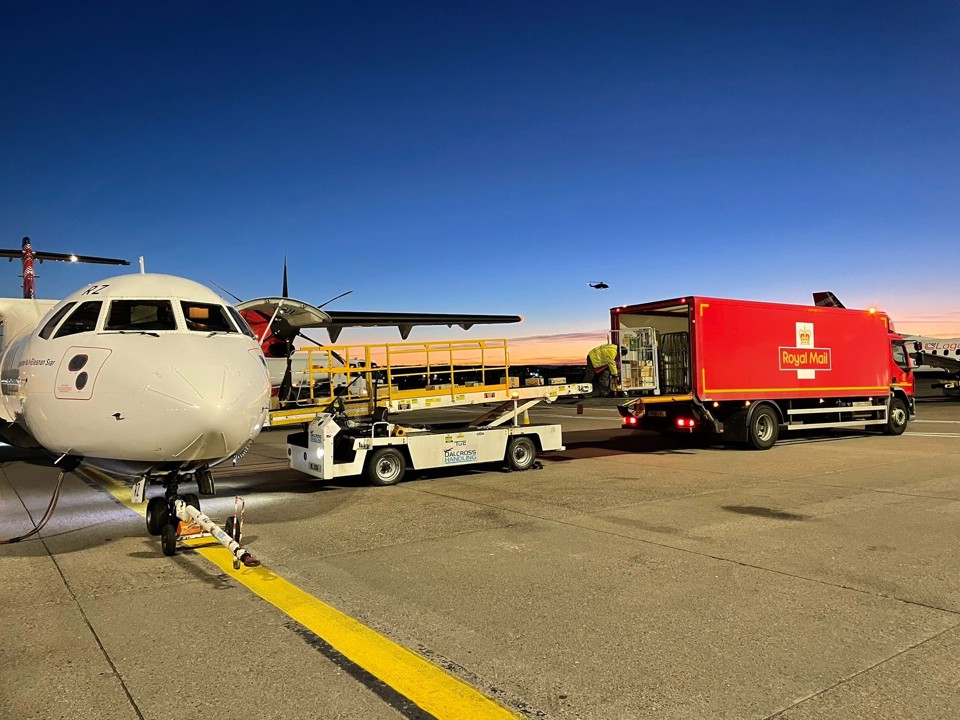The number of domestic flights Royal Mail operates is being cut in half, with the company instead choosing to transport more mail by road.
As well as saving around 30,000 tonnes of carbon dioxide equivalent per year, Royal Mail says that the switch from air to road will improve reliability as vehicles are less likely to be delayed by bad weather and are less capacity-constrained, enabling it to transport more during busy periods.
A total of 18 domestic flights are being discontinued, helping the firm towards achieving its target of being net-zero by 2040.
The first wave of 11 flights made their final journeys in June, with an additional three flights stopping on July 20 and a further four early next year.
The only domestic flights that will remain are those that are essential for Royal Mail to fulfil its universal service obligation to provide a next day delivery service to all 32 million addresses in the UK.
The capability to divert mail from air to road has been unlocked by changes Royal Mail has made to its operation, including later start times at delivery offices across the country, making it possible to accommodate longer journey times.
Alistair Cochrane, chief operating officer at Royal Mail, said: “The removal of half of our domestic flights is our biggest step yet in reducing our use of air to transport mail and a major step towards our Net-Zero by 2040 target.
“Not only will this reduce carbon emissions, transporting more mail by road will also help us provide a more reliable service for customers and increase our capacity to meet the increasing demand for next day parcel deliveries.”
He explained: “Moving letters and parcel by air has played a significant role in Royal Mail’s history, enabling us to fulfil our commitment to provide a next day delivery service to every address in the UK.
“However, we are continually modernising and these changes to our network mean that we can reduce our reliance on air which is good for our customers and the environment.”
Royal Mail has pledged to reduce its Scope 3 carbon emissions by 25% by 2030 as part of its commitment to reach net-zero by 2040.
It says that the discontinuation of 18 domestic flights is the most significant step yet in achieving this goal, projected to contribute a 4% reduction in total Scope 3 emissions based on a 2020-21 baseline.
Royal Mail’s fleet of heavy goods vehicles (HGVs), which are used to transport mail across the country, is partly run on hydrotreated vegetable oil (HVO).
It also operates one of the UK’s largest electric vehicle (EV) delivery fleets, with around 5,000 electric vans rolled out.




















Login to comment
Comments
No comments have been made yet.